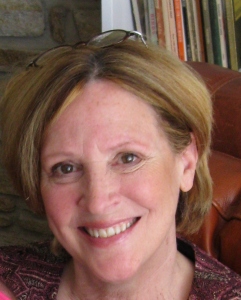In the village of Skaneateles, NY, at the base of its gorgeous lake, is a war memorial. Bronze plaques list the names of those who died. The first one, dedicated after World War I, is simple in its optimism. Above the names is its title: “The World War.” And then, of course, in a steady stream of more plaques next to it, comes the truth. Still, I love that bright anticipation. If only it were true.
I posted this blog entry about growing up in Massapequa with Ron Kovic last year on the Fourth of July, his birthday. And because this weekend is Memorial Day, and Memorial Day is more than picnics and mattress sales, I’m placing it here again.
***
“I don’t like this,” my mother said as she set the dinner table. “It’s getting to be a bad habit.”
The rest of my family out-voted her. So my brother placed the portable black and white TV on a snack table in the corner of the kitchen.
It was fall, 1967, and I was a senior in high school. Between bites of dinner and sips of milk, my family watched the news unfolding from Vietnam. As a student who thought history was her best subject, I was interested in the logistics of it all, the politics. My ability to watch young men being ripped apart on a 16-inch screen and then say things like, “Please pass the potatoes,” evidently didn’t bother me.
Then Ron Kovic got shot.
Ron Kovic grew up one block over and two blocks up from our house. He and his friends were a staple of my childhood. For one summer I worshiped his broad-shouldered body as he played ball every day in the neighborhood. He was — as were many others — the older boy who never looked my way. For three hot and humid months that year, I made up a reason to walk past his house ten times a day. I hoped for a “hello.” I never got a nod.
I’d lost track of him when he graduated from Massapequa High School in 1964. I had no idea he’d become a Marine. His little sister was at our bus stop on Broadway, but by the rules that governed bus stop protocol, I couldn’t talk to her because she was younger.
And then one afternoon in January, 1968, I saw his sister sobbing on the bus ride home from school, hunched over in her seat. Her friends crowded around her, and I heard one of them say, “Her brother got shot in Vietnam.”
Starting that day, I had two images of Ron Kovic that I couldn’t reconcile. In the first, he wore his letter sweater with the blue and gold M. He had a crew cut and was tan and smiling. In the second — only a few years beyond that — he lay in St. Albans Naval Hospital, paralyzed from the chest down.
In 1976, when Ron wrote about his life in Born on the Fourth of July, he graced the front page of The New York Times Book Review. He was renewed, strong in his anti-war convictions, still handsome. My brother bought a copy of the book for me and walked around the corner to the Kovic’s house and asked him to sign it.
“He was very pleasant,” my brother told me. “We talked for a long time. I asked him, but he said he doesn’t remember you.”
When you’re the cool kid on the block, you don’t recall the skinny 13-year-old in the shadows, even if she is adoring your every move. And that wasn’t the big role Ron Kovic was going to play in my life anyway.
January, 1968, my family stopped watching the Vietnam War unfold on the TV screen at dinner. I no longer needed Walter Cronkite to shepherd me through the Tet Offensive or the DMZ. Ron Kovic — that beautiful boy from Toronto Avenue who did perfect handstands — took over the job.
If I questioned what war was, or what it did, my answer was close by now. Two blocks away. At the bus stop. Every morning when I looked into his sister’s eyes.


